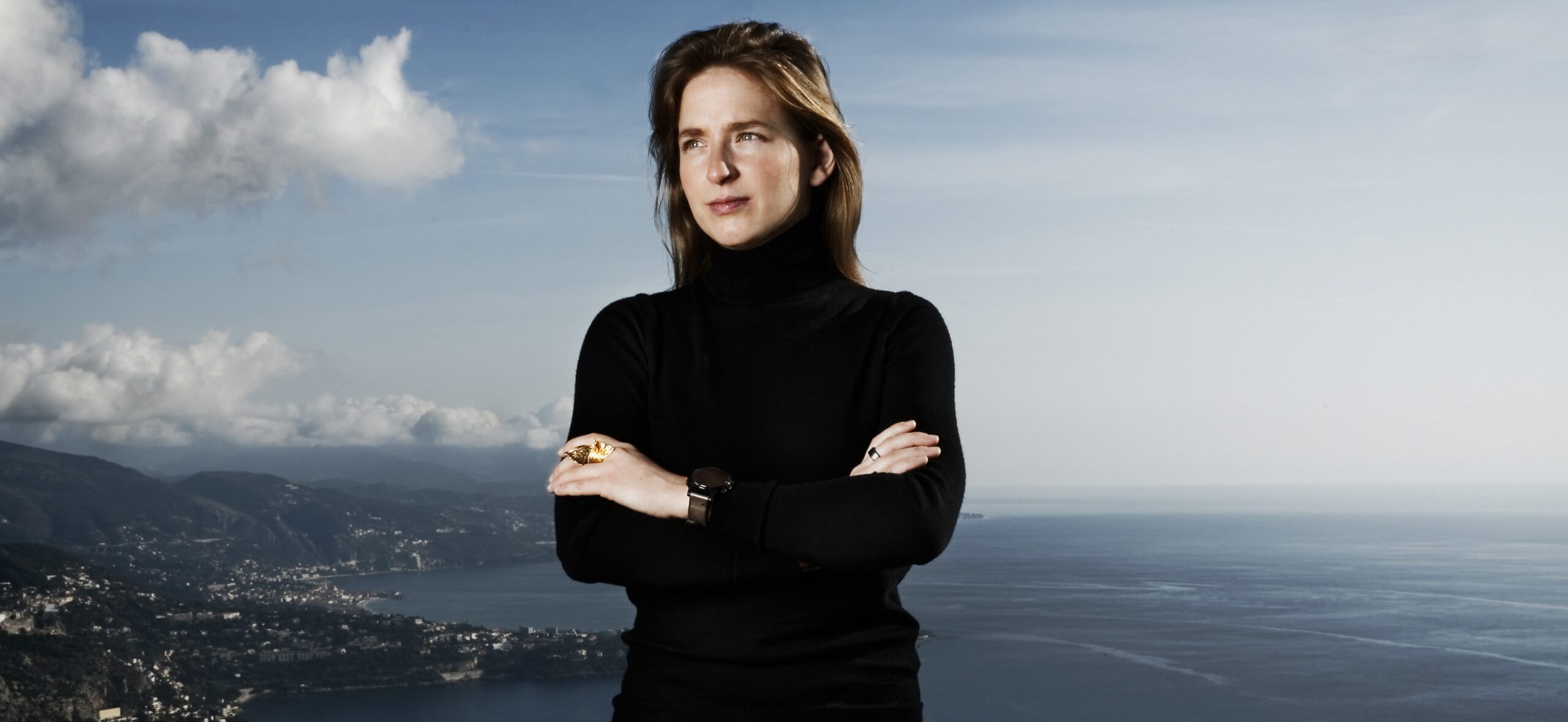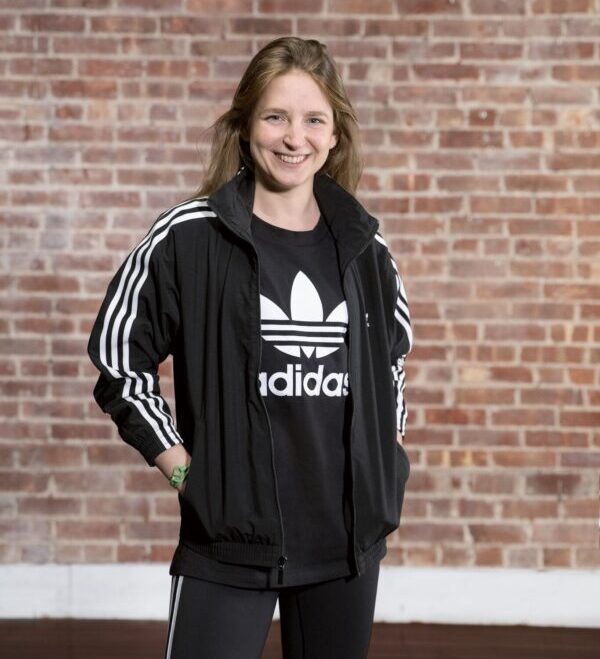Introducing WILD.AI
Q: Can you briefly introduce yourself and your startup?
A: I’m Helene Guillaume, the founder and CEO of WILD.AI. My academic background is in mathematics and financial risk. Professionally, I’ve worked in quantitative hedge funds and AI consulting. In addition to my career, I’m a competitive athlete with a background in rugby, triathlon, and ultra-marathons.
The motivation behind creating WILD.AI arose from recognizing gender disparities in sports. Women often face challenges in this realm, being perceived as less fast, less strong, and less interesting. This disparity prompted me to embark on a journey of self-discovery, seeking to understand the differences between men and women in sports. WILD.AI is centered around researching the female body, translating this knowledge into an app that guides women in their nutrition and training based on their menstrual cycle, and hormonal fluctuations if they use birth control or are in menopause. Complementing this, we offer a coach dashboard, allowing trainers to monitor their female clients. All of this is powered by an underlying API that can also be extended to third-party products and wearables, enabling adaptation to women’s unique needs in sports and fitness.
Motivation Behind Joining Entrepreneurs First
Q: What motivated you to join Entrepreneurs First?
A: I joined Entrepreneurs First at the very outset of my entrepreneurial journey. I had a vision of launching my startup, and the early stages of the idea were taking shape. My motivation for joining EF was twofold. Firstly, I wanted to build a network of like-minded individuals who could support me in creating my company. Secondly, I was on the lookout for a co-founder, and I believed EF was the ideal place for this. In the European landscape, it stood out as the incubator I wanted to be part of.
The technical nature of EF aligned perfectly with the vision I had for my startup. My concept revolved around leveraging data sets to understand the human body better, particularly in the context of sports. To bring this vision to life, I needed a partner with strong technical expertise. Joining Entrepreneurs First allowed me to find a co-founder, immerse myself in an environment that nurtured startups, and tap into the technical expertise I needed to make my vision a reality.
The Application Process
Q: Can you describe the application process of the accelerator?
A: The application process has evolved over time, but when I applied, it was a two-step journey. First, there was an online application, followed by an in-person interview. I’d say there were multiple stages, each designed to filter out the best candidates.
As for tips, it might sound cliché but being bold can really set you apart. Entrepreneurs First values unique experiences, especially in technical fields like a Ph.D. I wasn’t that technical; I studied mathematics but didn’t have a Ph.D. What helped me was the blend of my experiences and starting small side projects prior to the application. Instead of just saying, “I was a management consultant,” which doesn’t give a full picture of my potential as a founder, I had already started working on a project. Having something tangible to show gives you an edge and demonstrates that you’re serious about becoming a founder.
Accelerator Experience, Mentorship and Financing
Q: Can you describe a typical day within the accelerator after you get accepted?
A: After acceptance into Entrepreneurs First (EF), a typical day starts with the primary goal of finding a co-founder. In our cohort of 80 individuals, we engage in rapid introductions, sharing backgrounds, and searching for potential matches. It’s an unconventional setup where people who’ve never met before come together to form companies. Many teams are formed, broken up, and reconfigured during these early stages. Once a team is in place, the focus shifts to idea validation through customer interviews, a challenging but necessary step. It involves getting out, talking to people, and confirming the concept’s viability. This process is essential before moving on to building prototypes and preparing for fundraising.
Q: Did you also have access to mentors within the accelerator?
A: Yes, one of the standout aspects of Entrepreneurs First was mentor access. Individuals like Chris Mairs, known for his business acumen, served as mentors and later advisors to our companies. Their guidance was a significant value addition, providing practical help and expert insights. While I can’t speak for the current situation, during my time at EF, mentorship was instrumental in our development and growth.
Q: How much funding did you receive from Entrepreneurs First?
A: At the start, we received 10k to be split between the two co-founders. As time progressed, the funding increased to 30k, then 70k, and finally 50k, if I recall correctly. Additionally, EF provides the option for follow-up fundraising beyond the initial investment.
Achieving Milestones and Overcoming Challenges
Q: Can you describe a significant milestone that you achieved during the program?
A: One of the pivotal milestones during the program was the establishment of the company itself. This included building the foundational structure, working towards product development (although we hadn’t launched it yet at this stage), and initiating fundraising efforts. While I had found a co-founder initially, it’s worth noting that we eventually parted ways, which is not uncommon within the incubator environment.
Q: Did you face any challenges during the program?
A: Certainly, despite the early and successful formation of my co-founder partnership within the first two days, the program wasn’t without its hurdles. One challenge was the lack of iteration with other teams, potentially missing valuable insights. The program’s intensity prompted us to reevaluate our beliefs, which could be challenging. Additionally, I encountered a mentor whose guidance didn’t align with my approach, and it became apparent that the partnership wasn’t productive, underscoring the importance of compatible personalities in a high-stress environment.
Also, our B2C business model, which didn’t align with EF’s sector preferences, affected the support we received. We even missed the initial demo day pitch, testing our faith in the company. A significant challenge was the decision to split with my co-founder, creating an adjustment as we were the primary believers in the business.
To overcome the challenges we faced, we embraced Entrepreneurs First’s mantra of “strong beliefs, weakly held,” committing fully, and remaining resilient in the face of challenges. Our honey-badger mentality symbolizes this determination. Over six years, we’ve thrived, even when others doubted us. Building resilience has been essential, especially as the founder, often standing alone in your vision. Our motivation centers on proving the naysayers wrong and serving women where the industry falls short. It’s this unwavering belief that drives us forward, and we’re fortunate to have an exceptional team that shares this conviction.
Current Company Status
Q: What’s the status of the company today, post-accelerator?
A: Today, we’ve reached a remarkable milestone. We currently boast nearly 80,000 users, with a revenue stream in place. Importantly, we’ve secured a substantial letter of intent with a New York Stock Exchange-listed company. Beyond that, we’re proud to say that we’ve achieved leadership status globally in our domain. It’s a fantastic place to be.
Q: Did you have a time when you needed to pivot your idea?
A: We underwent numerous pivots. Initially, we catered to both men and women, but eventually narrowed our focus to serve women exclusively. Our journey included experimenting with a chatbot and other iterations. In the very early stages, we offered two products: a platform to find races and a training component. Eventually, we honed in on the training part. So, indeed, we experienced many significant pivots along the way.
Q: Do you still stay in touch with people and the network of Entrepreneurs First?
A: Yes, I maintain connections with people from Entrepreneurs First, especially those who were building their companies alongside me. We went through intense and emotionally challenging moments together. While I did receive support from the network, it’s less pronounced now, particularly in terms of introductions to venture capital firms.
Q: What are the next milestones that you’re targeting for your company?
A: Currently, we are in the midst of fundraising, which began just yesterday. Our significant milestone is to fulfill the terms of the letter of intent we’ve secured, allowing us to deploy our API integration for our first customer, a major wearable company. Beyond that, our vision is to expand this API integration to any wearable technology and software dedicated to serving women.
Final Tips
Q: Do you have any final advice that you want to give to other founders considering applying to Entrepreneurs First?
A: Certainly, I’d advise aspiring entrepreneurs, especially those considering applying to Entrepreneurs First, to focus on creating content. Often, it’s individuals rather than established companies that join. Creating content, such as blog posts or informative websites, is a fantastic way to start. Even with the ease of tools like ChatGPT, generating knowledge and showcasing it can make you an expert in a field. It’s not about creating a product, but about creating valuable knowledge. This approach helps set you apart, showcasing your expertise and passion for a particular sector. It’s a powerful way to stand out and demonstrate your dedication, far more substantial than just presenting a traditional CV.


